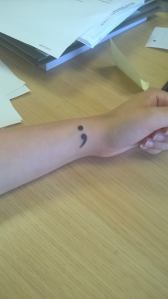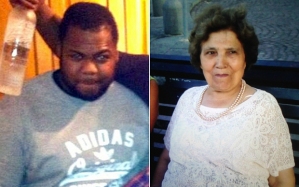“You have brains in your head. You have feet in your shoes. You can steer yourself any direction you choose. You’re on your own. And you know what you know. And YOU are the one who’ll decide where to go…”
― Dr. Seuss, Oh, The Places You’ll Go!
For those who regularly read my bog and twitter feed (@AC_MentalHealth) you will have noticed that there has been a distinct lack of posts recently.
Lying in bed last night, I stumbled across the above quote and felt that it was more than apt to my current situation. Things may not go to plan, but it is me in the driving seat and I have control of which way I steer.
It’s pretty obvious that I absolutely love my job. I started working in a regional office of a London firm in March of this year as an Admin Assistant. The hope was to work my way up with the firm and, in a perfect world, secure the elusive training contract that every law graduate in the country would also be applying for.
Six months on, I have worked my way up to the position of Mental Health Caseworker with Admin responsibilities. When I tell people my role, a lot of people have absolutely no idea what it means. A few of my family, through no fault of their own, simply lack of knowledge, thought that mental health law meant that someone with mental health issues had committed a crime and mental health lawyers try to ‘get them off’.
The role of a mental health lawyer is to ensure that the rights of those with mental health problems are upheld. For me, it’s about protecting the most vulnerable in society. Now, some people with mental health problems are detained under the Mental Health Act if they are really unwell, but that doesn’t at all mean that the person has done something wrong. There is something called a ‘forensic section’ which deals with those who have committed crimes, but, generally, those detained under the MHA are just like you or I and Doctors simply feel that they ought to be in hospital for assessment (section 2) or treatment (section 3). There are other sections but these are the most common.
Now, on Facebook recently, a fellow Warwick University Graduate who works as a mental health paralegal in London, posted a status saying that he was representing someone detained under the MHA at a Hospital Managers’ Hearing the next day. It’s safe to say that I was incredibly jealous! Then, someone who I don’t know, commented on the status saying that he was a junior doctor in psychiatry and asked why the person was detained. My friend said that the gentleman had schizophrenia with paranoid ideations. To this, the JUNIOR DOCTOR IN PSYCHIATRY replied “then why are you contesting it. Dude needs help”. Well, that got me angry, because help isn’t always a hospital.
The role of the mental health solicitor/paralegal is to advance the rights of the client, so if they say that they would like to be discharged from hospital then this is what we tell the Tribunal or Hospital Managers’ when the person appeals their section, with arguments added that discharge would be appropriate. We’re not ‘getting people out’.
For some people, being in hospital can make them worse. Especially if the ward is particularly disruptive, and where drugs are rife that can make things a lot harder. Assessing/treating those with mental disorder should not be about keeping someone in hospital until a doctor decides that they’re better. It’s about the individual, who may find it helps more to be at home with community psychiatric support, than in the often chaotic surroundings of a ward.
Anyway, I digress. What I’m trying to say, and what I could have said in eight words is, I really love working within mental health law.
And that’s when the rug of contentment was pulled right from underneath my feet…
All employees at my Firm were recently given notice of redundancies. Such an unexpected life-changing shock isn’t the best for someone with anxiety disorder. For the past week, I have had the worst headaches, and I never get headaches. Although, interestingly, there was no headache on Wednesday when I had my University day. It’s difficult because I got to the point where the stress of not knowing what was going on was really starting to become an issue, but I felt that I couldn’t say anything because of that fear of mentioning anything related to my own mental health having a detrimental impact on my future, as if it would show that I “can’t hack it”. Of course, that’s me being ridiculous but it is how the vast majority of those with mental health issues feel.
When I told my Grandma that I was potentially losing my job, she said “well you’ll just have to get another one won’t you”. God, if only it was that simple! Basically, there are no mental health paralegal jobs being advertised for in the whole of the North East, so that isn’t looking great.
All I can hope is that I will be able to continue doing the work that I love, wherever that may be. For now, I need to focus on my own mindfulness and wellbeing. One thing is for sure though, I won’t give up because I’ve worked too hard for that.
Dr Seuss is right, and every time I see my #semicolonproject tattoo, I’m reminded that I can conquer anything.

